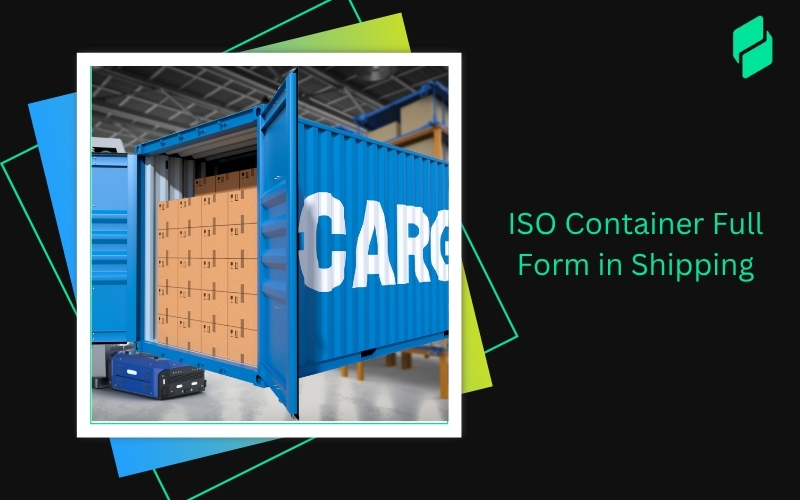Optimize your business: use unlimited savings with Pazago fulfilled now!
Get Started ->Expanding your business internationally? Partnering with the right export agents can be a game-changer. These professionals act as specialised intermediaries, connecting your business with overseas buyers by identifying potential markets, managing negotiations, handling documentation, and guiding you through the challenges of international trade.
You're not alone in facing challenges like unfamiliar regulations, language barriers, and market uncertainties, but with the right support, these challenges can be managed effectively.
In this guide, we’ll walk you through how to find reliable export agents and what to look for when choosing one for your business.
TL;DR
- Export agents connect your business with foreign buyers and manage negotiations, documentation, and compliance.
- They help simplify international trade, reduce risks, and expedite market entry without requiring a physical presence.
- Reliable export agents can be found via industry directories, trade shows, referrals, and platforms like Pazago.
- Select agents with strong industry experience, in-depth market knowledge, effective communication skills, and transparent commission structures.
- Avoid common mistakes like skipping formal contracts or picking agents based only on price.
- Pazago offers tools to easily find, communicate with, and manage export agents, streamlining your global export operations.
Who Are Export Agents?
Export agents are specialised intermediaries who serve as a vital link between exporters and foreign buyers by identifying potential clients, managing negotiations, coordinating necessary documentation, and providing expert guidance throughout the export process, thereby facilitating international sales.
Working with a reliable export agent can save you time, reduce costly mistakes, and open doors to markets you might not be able to reach on your own.
Types of Export Agents
Depending on the level of involvement and nature of services offered, export agents can be classified into several categories:
- Commission Agents
These agents work for a commission on every successful transaction. Their role typically includes identifying buyers, initiating contact, and negotiating terms. The exporter retains control over pricing and final decision-making. - Exclusive Agents
These agents are granted exclusive rights to represent an exporter in a specific geographic area or market segment. This arrangement can foster long-term partnerships and brand representation in foreign markets. - Freight Forwarding Agents with Export Assistance
- While freight forwarding companies primarily manage logistics and transportation, some also offer export support services such as documentation, customs compliance, and shipping coordination, acting as hybrid agents who combine shipping expertise with export facilitation.
After understanding the different types of export agents and their roles in the export process, it’s helpful to look at the specific services they provide.
Services Offered by Export Agents
Export agents provide a variety of services that make your international sales process easier and more efficient. Here’s how they can support you:
- Market Research and Buyer Identification
They help you find potential buyers and spot market opportunities in your target countries by using their local knowledge and connections. - Negotiation and Contract Facilitation
Export agents assist you in negotiating terms, prices, and contracts, acting as a bridge to ensure smooth communication with buyers. - Documentation and Compliance Support
They handle important export documents like invoices, certificates of origin, and customs paperwork, helping you stay compliant with regulations. - Order Processing and Coordination
Agents oversee your order confirmations, shipment schedules, and coordinate with freight forwarders or carriers to ensure your products reach customers on time. - After-Sales Support
Some export agents continue to support you after the sale, handling customer questions, warranty claims, and returns if needed.
By offering these services, export agents reduce the complexity of entering new markets, allowing you to focus more on your core business activities.
In the next section, you’ll see how export agents differ from other international partners like distributors and importers. This will help you understand where an agent fits into your overall export strategy.
How Export Agents Differ from Distributors or Importers
It’s important to distinguish between export agents and other international trade partners:
- Distributors buy goods from the exporter and resell them in the target market. They assume ownership and control over pricing and marketing.
- Importers are located in the destination country and procure goods for domestic sale, often initiating contact with foreign suppliers directly.
Export agents provide a lower-risk, more flexible way to enter markets because they don't take ownership of goods, unlike distributors, who assume full control and risk.
Benefits of Working with Export Agents
Engaging export agents offers several strategic advantages:
- Market Expertise
Export agents possess in-depth knowledge of the local market, including buyer behaviour, regulatory requirements, and cultural nuances, enabling more effective market penetration. - Cost Efficiency
Since agents typically work on commission, exporters can expand internationally without large upfront investments or establishing a physical presence overseas. - Streamlined Operations
Agents often handle key aspects of the sales process, including lead generation, buyer communication, negotiation, and document preparation, allowing exporters to focus on core business functions. - Faster Market Access
With an established network of buyers and partners, export agents can accelerate entry into new markets and reduce the time to secure first orders.
Also Read: Optimising Logistics and Operations Management
In the next section, you’ll see why having a good export agent can make a real difference when growing your business internationally.
Why Do Businesses Need Export Agents?
Export agents help bridge this gap by providing the expertise, connections, and hands-on support you need throughout the export process. Here’s why partnering with an export agent is a smart move for your business:
Understanding International Markets
Export agents bring valuable on-the-ground insights into foreign markets. They understand local buyer preferences, pricing dynamics, regulations, and competition. This market intelligence helps you:
- Identify the right product-market fit.
- Tailor your offerings to local demands.
- Position your products effectively against competitors.
Their familiarity with the cultural and economic environment helps you avoid costly missteps that can happen without local knowledge.
Understanding Legal and Compliance Requirements
Every country has its own rules for imports, including documentation standards, customs duties, product certifications, and trade restrictions. Export agents help you:
- Stay compliant with the destination country’s regulations.
- Prepare accurate export documentation.
- Avoid costly shipping delays or legal issues at customs.
Their expertise ensures your shipments meet all legal requirements and reach your buyers without unnecessary complications.
Negotiating and Securing Deals with Foreign Buyers
Export agents, often fluent in local languages and business customs, will:
- Initiate and nurture buyer relationships for yourself.
- Negotiate pricing and payment terms.
- Resolve misunderstandings or disputes.
Their involvement builds trust between you and your buyers, increasing your chances of closing deals successfully.
Reducing Risks and Improving Operational Efficiency
Exporting carries risks such as logistical delays, payment defaults, communication gaps, and fluctuating exchange rates. Export agents help you manage these risks by:
- Verifying buyer credibility
- Coordinating logistics with local freight partners
- Ensuring timely communication between all parties
By letting an experienced agent handle these challenges, you can focus on growing your business while enjoying smoother, safer export operations.
Also Read: 12 Required Pre-Shipment Documents for Export Procedure and Shipping Process
Next, you’ll discover practical steps and key strategies to help you find reliable export agents who can support your business growth.
How To Find Reliable Export Agents for Your Business
Here are some effective ways to identify and select trustworthy export agents:
Research Industry Networks and Directories
Start your search by exploring trusted government portals and trade associations that list verified export agents. These platforms offer reliable contact details and insights into agent specialisations.
- In India, use directories from the Directorate General of Foreign Trade (DGFT) and the Federation of Indian Export Organisations (FIEO).
- For global options, explore B2B marketplaces like Alibaba, Kompass, and Global Sources, which provide detailed company profiles and user reviews.
These resources help you target agents experienced in your product category and export markets.
Attend Trade Shows and Export Fairs
Trade fairs offer opportunities to meet export agents in person, assess their expertise firsthand, and discuss your specific requirements thoroughly.
- Key events include the India Exporters Trade Fair (IETF) and the Canton Fair in China.
- Networking at such events also gives you a sense of market trends and competitor activity.
Building supplier relationships at these gatherings can lead to trustworthy, long-term partnerships.
Use Trade Management Platforms
Modern trade platforms like Pazago streamline the process of finding and managing export agents.
- They provide verified agent listings, reducing risk.
- Integrated tools allow real-time shipment tracking, easy document handling, and smooth communication.
This technology saves time, improves transparency, and boosts overall export efficiency.
Use Existing Business Connections
Tap into your professional network for referrals. Trusted recommendations often lead to agents with proven track records.
- Reach out to fellow exporters, suppliers, freight forwarders, or logistics providers.
- Personal referrals offer insights into an agent’s reliability, communication skills, and market knowledge.
Check Credentials and Background
Before partnering, perform thorough due diligence:
- Verify legal registrations, trade licenses, and industry certifications.
- Review their export history and client feedback.
- Ensure they are familiar with customs, documentation, and product-specific requirements.
Choosing an agent with strong credentials minimises risks and supports smooth export operations.
Ready to simplify your export operations and connect with verified agents effortlessly? Explore Pazago, the all-in-one trade management platform designed to help exporters find reliable agents, manage shipments, and streamline documentation, all in one place.
Also Read: Top 10 Import And Export Companies In Mumbai
Next, we’ll explore the essential qualities you should look for when choosing an export agent to ensure a successful partnership.
Key Qualities to Look for in an Export Agent
Choosing the right export agent is critical for your business’s success in international markets, as a reliable agent expands your reach and safeguards your interests by handling negotiations and compliance efficiently.
- Industry Experience and Product Knowledge
Look for agents with extensive experience in your specific industry. Familiarity with your products ensures they understand technical specifications, quality standards, and customer expectations, which helps them better represent your brand abroad. - Market Expertise in Your Target Region
An export agent must have deep knowledge of the target market’s culture, business practices, regulations, and consumer behaviour. This insight enables them to tailor their offerings effectively and understand local challenges with ease. - Transparency in Commissions and Pricing
Clear and upfront communication about commission structures, fees, and pricing policies is vital. Transparency avoids surprises later and builds trust, making it easier to maintain a long-term partnership. - Communication and Negotiation Skills
Strong communication skills are a must-have to manage discussions with buyers, suppliers, and customs authorities. The ability to negotiate favourable terms while maintaining professionalism can significantly impact your profit margins. - Strong Buyer Network and References
An export agent with a well-established network of buyers and distributors is more likely to open doors for your products quickly. Always ask for references or case studies that demonstrate their success in connecting exporters with credible buyers.
By prioritising these qualities, you ensure that your export agent becomes a true partner who can effectively represent your interests and help your business grow globally.
Suggested Read: Best B2B Portal For Export Business In India
Before you decide, the next section covers important questions to ask an export agent.
Questions to Ask Before Onboarding an Export Agent
Before finalising an export agent, it’s important to ask the right questions to ensure they align with your business goals and can effectively represent your products in foreign markets. Here are key questions to guide your evaluation:
- What markets do you specialise in?
Understanding the agent’s area of expertise helps determine if they have relevant experience and networks in the regions where you want to export. - Can you share client references or success stories?
Requesting references or examples of previous successful exports provides insight into their credibility and track record. - What are your commission structures?
Clarify how they charge for their services, including any hidden fees or additional costs, to avoid surprises later. - How do you handle disputes or logistics issues?
Export can involve unexpected challenges. Knowing how your agent manages conflicts or shipment problems is essential for smooth operations. - Do you provide market reports or buyer insights?
Agents who offer valuable market intelligence or buyer trends can give you a competitive edge and help you make informed decisions.
Asking these questions upfront will help you select an export agent who is transparent, reliable, and well-equipped to support your business growth abroad.
To avoid issues, let’s review common mistakes when choosing an export agent.
Common Mistakes to Avoid When Choosing an Export Agent
Many exporters face costly setbacks due to avoidable errors such as neglecting essential contract details, overlooking quality considerations, and failing to maintain clear communication.
- Not Signing a Clear Agreement
Always formalise your relationship with a detailed contract outlining roles, responsibilities, commission rates, and termination clauses. Verbal agreements or vague contracts can lead to misunderstandings and disputes later. - Choosing Based Solely on Price
While cost is important, selecting the cheapest agent without considering their expertise, reliability, and market knowledge can compromise your export success. Quality and trustworthiness should take priority. - Ignoring Red Flags
Watch out for vague communication, lack of transparency, or unverifiable experience. These warning signs often indicate potential problems such as poor service or even fraud. - Failing to Define Deliverables and KPIs
Set clear expectations from the start. Define what outcomes you expect, including sales targets, timelines, and communication frequency. Without measurable goals, it’s difficult to evaluate the agent’s performance.
By avoiding these mistakes, you can build a strong partnership with an export agent who truly supports your business growth and minimizes risks.
Finally, let’s look at how Pazago can support you in connecting with the right agents and managing your export operations more efficiently.
How Pazago Can Help Exporters Connect with the Right Export Agents
While finding the right export agents is essential, managing your export operations smoothly is equally important. Pazago offers an all-in-one platform that helps exporters streamline the entire export process with features such as:
- Seamless Communication Hub: Coordinate easily with agents, freight forwarders, and insurers to resolve issues quickly.
- Centralised Document Management: Keep all shipping and export documents organised and accessible in one secure place.
- Real-Time Shipment Tracking: Monitor your shipments live to stay updated and address any issues promptly.
- Pre-Shipment Quality Checks: Avoid the hassle of rejected shipments with Pazago's quality checks before dispatch.
- Affordable Logistics Solutions: Optimise shipping routes and costs to improve delivery timelines.
- Integrated Insurance Management: Manage export insurance policies and claims efficiently within the platform.
- Access to Pazago Trades: A dedicated trade management portal to oversee your export transactions seamlessly from start to finish.
These tools help exporters reduce risks, save time, and improve overall export efficiency, making Pazago a valuable partner in your global business growth.
Conclusion
Finding the right export agents is a critical step toward successfully expanding your business into international markets. Reliable agents bring invaluable local knowledge, buyer networks, and hands-on support to help you understand difficult export processes, reduce risks, and close deals efficiently. By carefully researching, vetting, and asking the right questions, you can build strong partnerships that drive growth and global reach.
To keep everything on track, Pazago offers tools that simplify communication, document management, shipment tracking, quality checks, and logistics coordination. Using a platform like Pazago means you can focus more on growing your business while having full control over your export operations.
If you want to make exporting easier and build stronger global connections, connect with our experts today!
FAQs
1. Who are export agents, and what do they do?
Export agents act as intermediaries between exporters and foreign buyers. They help identify potential buyers, negotiate deals, manage documentation, and assist with regulatory compliance to facilitate international sales.
2. Is an export agent necessary for small businesses?
While not mandatory, working with an export agent can be highly beneficial for small businesses new to exporting. Agents provide local market knowledge and simplify difficult export procedures, reducing risks and saving time.
3. How do I verify the credibility of an export agent?
Check for valid business licenses, industry certifications, and client references. Research their export history and reputation through trade directories, industry associations, and platforms like Pazago that offer verified agent listings.
4. What is the typical commission charged by export agents?
Commission rates vary depending on the industry and services provided, but generally range from 5% to 15% of the export sale value. Always clarify commission structures upfront to avoid surprises.
5. Can Pazago help me find export agents in specific countries?
Yes. Pazago’s platform allows exporters to search and connect with verified export agents filtered by country, product expertise, and market focus, making it easier to find agents suited to your target regions.


.png)








